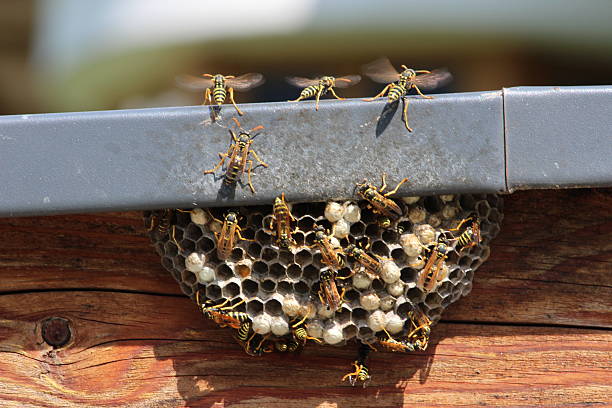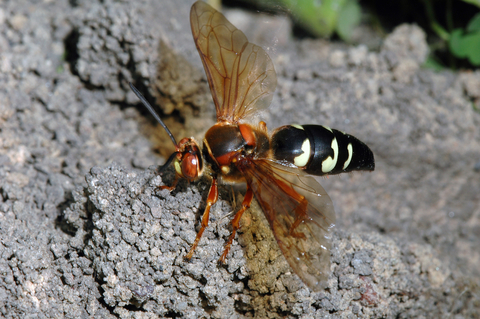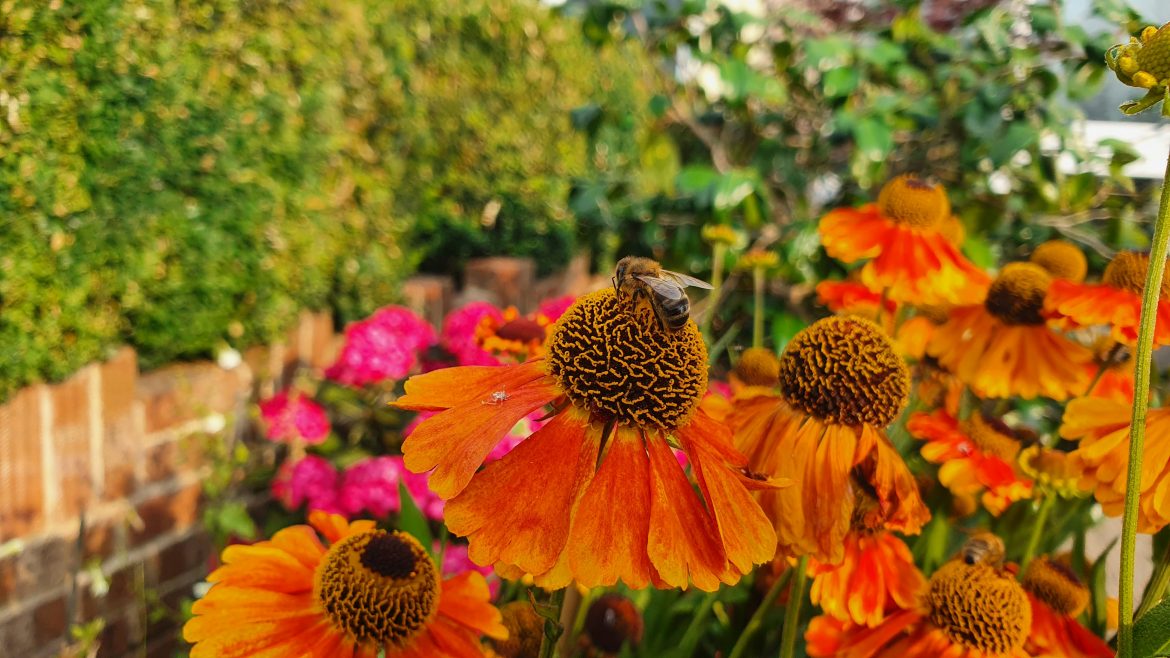Wasps generally have a bad reputation, but they’re the best organic pest control around. Wasps are attracted to flowers where the insects they hunt are also found. So having wasps is quite beneficial for your garden.

Image Credit: Pexels
Here are the 3 major benefits of wasps in your garden:
They control pest
Pesky pest populations can increase rapidly if nothing is done to keep them under control. So having wasps in your garden can be a great help. Wasps are predators of several crop-eating pests. Having them in your garden will help keep other crop-eating insects from overpopulating in your garden.
Wasps can be great pollinators
Just like bees, wasps are great for pollinating. Wasps are famously known for pollinating fig trees. Without wasps, chances are figs would probably be non-existent.

Image Credit: Pexels
Wasps help control invasive species
Parasitoid wasps specialise in targeting other species of insects and lay their eggs inside of them. The eggs hatch and the larvae feed on the other insect from the inside out, killing the host insect.
These types of wasps control pests by using this method. The bonus of having parasitoid wasps is that they are small and solitary, meaning you won’t have a colony of wasps in your garden.

Image Credit: Pexels
A fun fact about wasps is that male wasps are harmless, unlike the females that use their micro-barbed sting repeatedly at prey.
When you see a wasp buzzing around your garden, welcome it as chances are they might be an additional benefit to your growing garden. Without the vital ecological role that wasps play in controlling the numbers of crop-eating insects, it’s likely our environment would be full of potential pests.
Pets and wasps
Dogs and cats can get carried away with wasps and while it may be cute to watch, the reality is that your pet might get stung. If you or your pets get stung by wasps, there are natural options that can help alleviate the discomfort.
Here are some natural anti-inflammatories for wasp stings:
- Aloe Vera: Known for its soothing properties, apply fresh aloe vera gel directly to the sting to reduce inflammation and relieve pain.
- Cold Compress: Applying a cold compress or ice pack wrapped in a towel to the affected area can help reduce swelling and numb the pain.
- Honey: Applying raw honey to the sting can help soothe the skin and reduce inflammation due to its antibacterial and anti-inflammatory properties.
- Bicarbonate of soda: Make a paste using bicarbonate of soda and water, and then apply it to the sting. This will help to neutralize the acidity of the wasp venom and reduce swelling.
- Apple Cider Vinegar: Dilute apple cider vinegar with water and apply it to the sting using a cotton ball. It can help reduce inflammation and relieve itching.
- Chamomile Tea: Brew chamomile tea, let it cool, and then apply it to the sting using a cotton ball. Chamomile has anti-inflammatory properties that can help reduce swelling and soothe the skin.
- Turmeric: Mix turmeric powder with water to create a paste and apply it to the sting. Turmeric contains curcumin, which has strong anti-inflammatory properties.
- Lavender Essential Oil: Dilute lavender essential oil with a carrier oil, such as coconut oil, and apply it to the sting. Lavender oil has anti-inflammatory and analgesic properties that can help relieve pain and swelling.
- Peppermint Essential Oil: Dilute peppermint essential oil with a carrier oil and apply it to the sting. Peppermint oil has cooling properties that can help numb the pain and reduce inflammation.
Remember to test a small area of the skin for any allergic reactions before applying these remedies more extensively. If you or your pet experience severe symptoms or allergic reactions to a wasp sting, seek medical attention immediately.
ALSO SEE:
Feature image: Unsplash
A version of this article was published in Garden&Home Magazine.

